People
Faculty
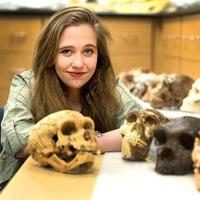
Kat Albrecht
Kat Albrecht is pursuing a PhD in Sociology at Northwestern University. Her research focuses on investigating how the structure of data shapes research conclusions and broader sociological theory. Using machine learning methods, quantitative causal inference, and mapping techniques she primarily builds and analyzes large criminal justice datasets. She is especially concerned with the economics of fear, the working definition of homicide, and the general state of crime data. She received her bachelor’s degree from the University of Minnesota where she first began exploring the junction of computational methods and the social sciences.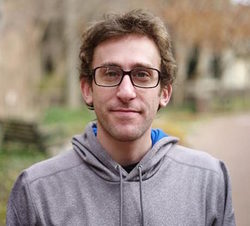
Joshua Becker
Joshua Becker defended his PhD at the University of Pennsylvania and will be starting as a postdoctoral fellow with the Kellogg School of Management and the Northwestern Institute of Complex Systems. His research on collective intelligence uses formal models and experimental tests to examine how social network structure shapes group decisions. His current research focuses on how communication networks can be harnessed to tap the wisdom of crowds and improve estimation accuracy on tasks such as financial forecasting, political beliefs, and medical diagnoses.
Jeremy Foote
Jeremy Foote is a PhD candidate in the Media, Technology, and Society program at Northwestern. He is a member of the [Community Data Science Collective](https://communitydata.cc). Using computational social science tools like social network analysis and simulation, he researches how people cooperate to create online collective goods, focusing particularly on how new projects get started and which ones grow.Speakers
Live Stream
Matt Salganik, Chris Bail, Deen Freelon, David Lazer, Kristian Lum, Sendhil Mullainathan, Cynthia Rudin, and Duncan Watts.
Ned Smith
Ned Smith is an Associate Professor of Management and Organizations at the Kellogg School of Management, Associate Professor (by courtesy) of Sociology, core faculty member of the Northwestern Institute for Complexity (NICO), and faculty associate at the Northwestern Institute for Policy Research.
Sheena Erete
Sheena is an assistant professor in the College of Computing and Digital Media at DePaul University in Chicago, IL. Sheena co-directs the Technology for Social Good | Research and Design Lab with Dr. Denise Nacu.
Agnes Horvat
Ágnes Horvát is an Assistant Professor in the Department of Communication Studies, an affiliated faculty of the Northwestern Institute on Complex Systems (NICO), and the Department of Management and Organizations of the Kellogg School of Management (by courtesy).
Alex Engler
Alex is the Program Director and a Lecturer for the M.S. in Computational Analysis and Public Policy degree at the University of Chicago. In addition to teaching courses on Data Visualization and Large Scale Data Methods for policy research, he is a contributing Data Scientist at the Urban Institute.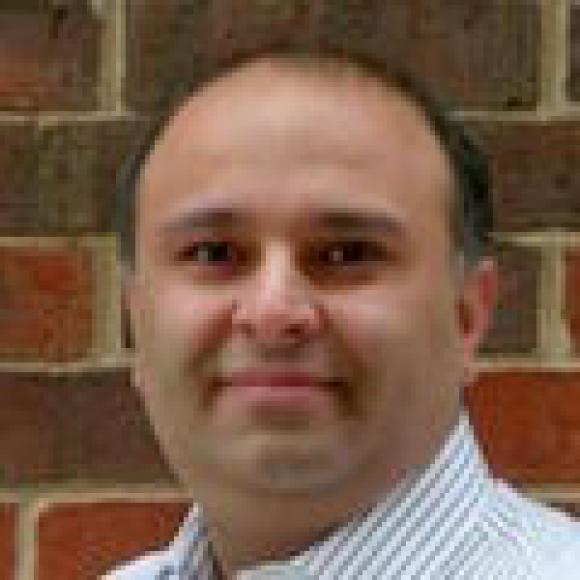
Rayid Ghani
Rayid Ghani is the Director of the Center for Data Science & Public Policy and a Senior Fellow at the University of Chicago Harris School of Public Policy and the Computation Institute.Teaching Assistants
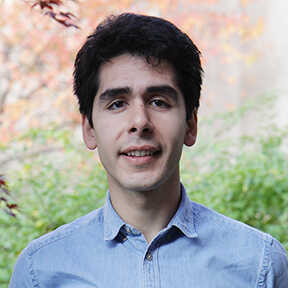
Diego Gómez-Zará
Diego Gómez-Zará is a Ph.D. Student in the Technology and Social Behavior program at Northwestern University. He is a graduate research assistant of the SONIC Lab. He researches how team assembly is supported by technologies, diffusion of information through social media, and social network analysis.Participants
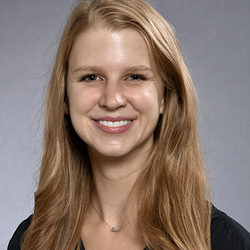
Anna McKean
Anna McKean is a joint PhD student in Management & Organizations and Sociology. Her research interests include social movements, organizational change and influence, and non-market strategy. Currently, her research focuses on how corporations respond to, participate in, and influence social and political activism and policy change.
Basak Taraktas
Basak is a Postdoctoral Fellow at Northwestern University. She received her Ph.D. in Political Science from the University of Pennsylvania in 2016. Her research centers on collective action and conflict. Much of her work is set in the context of regimes, contentious politics, and international economy, where she combines computational methods, network analysis, and qualitative methods. Basak’s co-authored chapter, When Does Repression Trigger Mass Protest?, was acknowledged by Cornell University with the 2015 Sidney Tarrow Best Article Prize for a paper written by a graduate student in the field of contentious politics or in European politics, sociology or history.
Daniel Trielli
Daniel Trielli is a PhD student at the Media, Technology and Society program at Northwestern. He is researching computational journalism and how news reaches the public in our increasingly algorithmically-defined world.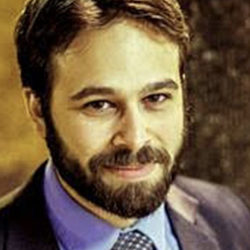
Dustin Stoltz
Dustin Stoltz is a PhD candidate in sociology at the University of Notre Dame and a Doctoral Affiliate with the Kellogg Institute for International Studies. He researches the production, distribution, consumption, and consequences of ideas, specifically ideas about the economy. As part of his dissertation, he applies network analysis and text analysis to a unique dataset of management consultants working in North America and Southeast Asia and the numerous articles they write.
Elizabeth Trudeau
Libby Trudeau earned her MA from the University of Chicago and is currently working on a PhD in sociology at the University of Notre Dame. Her research focusses on cultural meaning-making particularly around the social construction of gender and sexuality. Her current projects focus on discourses regarding sex work and human trafficking in the U.S. She is excited about using mixed- methods techniques to gain creative insights.
Hanlin Li
Hanlin Li is a Ph.D. student in the Technology and Social Behavior program at Northwestern University. She is a member of the People, Space, and Algorithms Research Group. She studies how individuals and organizations use technology to support social causes. Taking mixed methods approaches, she designs, builds, and tests civic technologies that empower collective action online.
Hee Youn Kwon
Hee Youn Kwon received her PhD in Systems and Entrepreneurial Engineering at the University of Illinois at Urbana-Champaign in May 2018. At the University of Illinois, she had worked as a research and teaching assistant in the Department of Industrial and Enterprise Systems Engineering (ISE), the Computational Science and Engineering Program (CSE), and the Department of Computer Science (CS). She wrote her PhD dissertation on new developments in causal inference using Balance Optimization Subset Selection under supervision of Professor Sheldon H. Jacobson. Prior to Illinois, she received a B.S. in Mathematical Sciences from Korea Advanced Institute of Science and Technology (KAIST) and an M.Phil. in Economics from University of Oxford.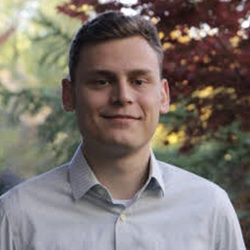
Igor Zakhlebin
Igor Zakhlebin is pursuing a PhD in Technology and Social Behavior, a joint program in Computer Science and Communications at Northwestern University. His current projects study how crowds of people come together to produce new cultural works and how they collectively pay attention to them. To answer these questions, Igor performs large-scale data analyses and builds computational tools to support them. His methods of choice are network analysis, machine learning, and computational modeling.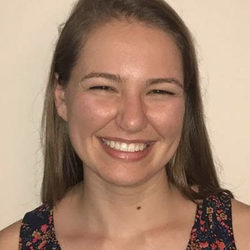
Iva Terwilliger
Iva Terwilliger is a PhD student in the Health Sciences Integrated PhD Program (HSIP) with a concentration in Healthcare Quality and Patient Safety. She studies teamwork in healthcare and is part of Nick Soulakis' lab. Iva is interested in using mixed methods to better understand how teamwork can be better utilized to improve the quality of patient care. Before coming to Northwestern, Iva worked as an RN at the VA and NYU Langone.
Jeremiah Bohr
Jeremiah Bohr is currently an Assistant Professor of Sociology at the University of Wisconsin Oshkosh, and received his Ph.D. from the University of Illinois at Urbana-Champaign. His research focuses on climate change denial (both in terms of organization and individual attitudes), household energy use and energy insecurity, and text analysis. He is currently using computational methods to study the communication of climate change by politicians on social media.
Josey VanOrsdale
Josey VanOrsdale is currently a doctoral student at the University of Nebraska-Lincoln in the sociology department. Her research interests are in biosociology, minority health disparities, and quantitative and computational methods. Her most recent research has encapsulated these interests by looking at the subbaccalaureate education level within the education-health gradient. For the past year, she has also worked as part of the LifeHD lab at the University of Nebraska. She has recently joined and looks forward to contributing to the Research, Evaluation, & Analysis for Community Health (REACH) lab.
Kyosuke Tanaka
Kyosuke Tanaka is a Ph.D. student in the Media, Technology, and Society program at Northwestern University. He is interested in network perception and cognition. His recent research explores how people decode, recall and learn the social networks around them.
Roland Adorjani
Roland Adorjani is a Ph.D. Candidate in the School of Sociology at University College Dublin. My dissertation focuses on large-scale discourse analysis of e-therapy conversations. His project is also linked to collaborations with enterprise partners in the mental e-health domain. Other research interests include large-scale social media discourse analysis of Twitter hashtag campaigns and science of science. Prior to graduate school, he worked as a data scientist at opening.io.
Sarah Otner
Sarah Otner is a Research Fellow in the Strategy & Organizational Behavior group at Imperial College Business School (London, UK). Her research uses economic sociology and social psychology in order to understand the mechanisms and the consequences of social status. Sarah's research focuses on prestige and expertise, and especially award competitions; her current research projects examine prize scarcity, prize sharing, establishing new prizes, and prize refusals.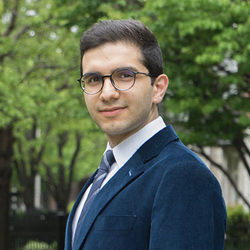
Seyed Mohamad Hosseinioun
Mohamad Hosseinioun is pursuing a Ph.D. in Management Information Systems at the University of Illinois at Chicago. He has received his bachelor's and master's degrees in Industrial and Systems Engineering and his research focuses on Causal Inference and Prediction in Complex and Dynamic Systems. Using Statistical and Fuzzy Machine Learning methods, Network Analysis, and Econometrics he investigates the behavior of social and economic entities. He is especially interested in collective realities and collective decision making, where the outcome of the "whole" is significantly altered by the interconnected behavior of the "individual"s.
Shu Fu
Shu Fu is a third-year PhD at the Department of Political Science at the University of Chicago. He studies American politics and political methodology. His research interests include American presidency, election, and public opinion. He is also interested in machine learning and causal inference in methods. He is currently working on multiple research projects. One project is related to the presidential partisan particularism, explaining how and why American presidents impact distributive politics and allocate disproportionately more federal funds toward their core states. Another project is to use advanced textual analysis to understand how first ladies communicate with the public. His dissertation is on American presidential public appeals and party building.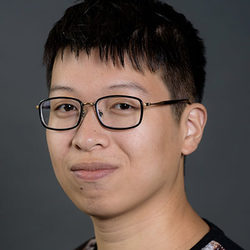
Yian Yin
Yian Yin is currently a PhD candidate of Industrial Engineering & Management Sciences (IEMS) at McCormick School of Engineering and Applied Sciences, Northwestern University. He is also affiliated to Social Complexity group at Northwestern Institute on Complex Systems (NICO). His current research lies in the boundary of data mining, complex systems and computational social science, with a focus on understanding successes and failures in individual career from large-scale datasets. He received his bachelor's degrees in Statistics and Economics from Peking University in 2016.
Yini Zhang
Yini Zhang is a Ph.D. candidate in the School of Journalism and Mass Communication at the University of Wisconsin Madison. She studies how emergent communication technologies impact the dynamics and outcomes of political communication. Her research mainly concerns agency, algorithms, and attention in the hybrid media system. She is also interested in media psychology such as hostile media and fact-check effects in the new media environment. She does mixed method research by applying both traditional communication research methods, such as survey and experiment, and computational methods, such as social network clustering and topic modeling, to mining insights about individual communication and media system in an ever evolving media landscape.